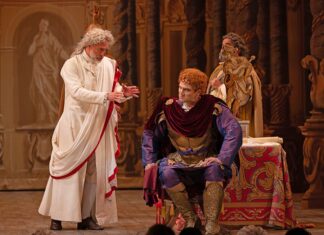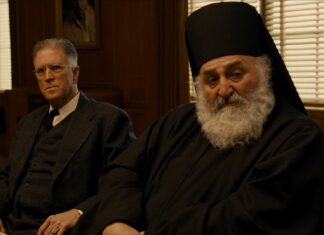By Harry Keyishian
Special to the Mirror-Spectator
Dikran Sarkis Kouyoumdjian was born in Ruse, Bulgaria in 1895. His father, Sarkis Kouyoumdjian, had established a successful import company in the city of Plovdiv, but moved his family to Southport, in Lancashire, England, in 1901, fearing local conditions in Bulgaria. Dikran, the youngest of five children, was sent to Malvern College and, briefly, to Edinburgh University, but in 1913, abandoned his studies and moved to London to seek a career as a writer. He wrote on Armenian themes for Ararat: A Spotlight on Armenia, a London journal deeply engaged with the massacres and deportations of Armenians in Turkey. Dikran Kouyoumdjian went on to write for the well-established London journal The New Age, edited by A. R. Orage, from which he reached a wider audience on a wider variety of topics and genres.
Finding it difficult to gain literary fame as Dikran Kouyoumdjian, he changed his name to Michael Arlen, thereby, as he put it, depriving the reading public of any excuse for denying him literary fame. After producing a couple of reasonably successful books of fiction, he got his wish with The Green Hat (1924), a commercial best seller that translated well into a play and several movies (starring the likes of Katharine Cornell, Tallulah Bankhead, Greta Garbo, and Constance Bennet, among other). The Green Hat succeeded mightily by using the familiar literary trope of the woman of noble heart whose goodness is unappreciated by society. (The novel’s heroine, Iris March, might be described as Camille with a driver’s license.)
Other novels followed, though none as successful, and Arlen eventually found his way to Hollywood, where his detective character Gay Falcon solved crimes in a successful series of movies from 1940-1946, starring George Sanders and, later, Tom Conway. Arlen died in New York City in 1956, largely forgotten by the literary world.
However, in 1970, Arlen’s son, Michael J. Arlen, writer for the New Yorker and one of the founders of modern media studies with his book Living Room War (1969) wrote Exiles (1970), a vivid and deeply felt account of his parents’ life that was nominated for a National Book Award, and he won the National Book Award in 1975 for his book Passage to Ararat, which describes his visit to Armenia and his own encounter with his Armenia heritage. In 1976, my book Michael Arlen appeared, a study of Arlen senior’s novels, stories, plays, and filmscripts. And that was about it on the Michael Arlen front.








